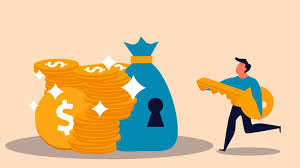Fed meeting today: Live updates of interest rate decision for May


Federal Reserve sees possibility of no rate cuts in 2024
Federal Reserve Bank of Minneapolis President Neel Kashkari says interest-rate cuts may not be needed this year if progress on inflation stalls.
Bloomberg
It’s deja vu all over again: The Federal Reserve is expected to take no action on interest rates at its monthly meeting on Wednesday, leaving them perched at a 23-year high as the market ponders when the cutting will commence.
If that scenario plays out, the central bank’s key short-term rate will remain at 5.25% to 5.5%, where it has sat since July.
When is Fed rate decision?
The Fed meets this week for the first time since recent high inflation readings dampened hopes that the central bank will lower interest rates three times this year.
At the close of a two-day meeting that started Tuesday, the Fed is expected to keep its key short-term interest rate unchanged, at a 23-year high of 5.25% to 5.5%. Fed officials aren’t slated to update their March forecasts on the economy, inflation and rates. But Fed Chair Jerome Powell could provide clues on where he thinks interest rates are headed.
Interest rates have been in a holding pattern for months. Forecasters had projected the first rate cut in June, and a total of three decreases in 2024. Now, they predict just one cut, in September.
- Paul Davidson
What does Fed chief Powell say about inflation?
Initially, Jerome Powell said consumer price increases in January and February simply could have been blips on a steady downward path to 2% inflation, the Fed’s target. At that point, Fed officials’ forecast for three interest rate cuts this year remained intact.
But after inflation reports showed that prices surged again in March, Powell took a different tone.
“The recent data have clearly not given us greater confidence (that inflation is heading sustainably to 2%) and instead indicate that it’s likely to take longer than expected to achieve that confidence,” he said at a recent forum.
Futures markets had projected the first rate cut in June and a total of three decreases in 2024. Now, they predict just one cut, in September.
- Paul Davidson
What will Fed chief Powell say about interest rates?
Economic forecasters dissect Jerome Powell’s words very carefully when he speaks about where interest rates might be headed.
Economists at Goldman Sachs and Barclays expect Powell on Wednesday to reiterate his earlier comment that it will “likely take longer than expected to achieve that greater confidence” needed to cut rates.
Barclays economist March Giannoni doesn’t expect Powell to “be very specific about the number of cuts.” Fed officials aren’t updating their forecasts, and Powell has said Fed decisions will hinge on the course inflation takes in coming months.
Nationwide economist Oren Klachkin figures the Fed chief won’t tip his hand.
“I think he’ll leave the door open,” he says. “I think (Fed officials) still very much want to cut rates,” now that inflation is slowing and the risks that high rates pose to a cooling job market are growing.
- Paul Davidson
The current federal funds rate, expressed as a range, sits at 5.25% to 5.5%. Forecasters expect the Fed will announce Wednesday that the rate is unchanged, the same decision the panel reached in five prior meetings.
The Fed's benchmark interest rate has not changed since July 2023.
- Daniel de Visé
What is the federal funds rate?
The federal funds rate is what banks pay each other to borrow overnight. It is the target interest rate (technically, a range of interest rates) set by the Federal Open Market Committee, the group that is meeting Wednesday.
If the federal funds rate increases, banks usually pass along that extra cost, meaning it becomes more expensive for businesses and consumers to borrow as rates rise on credit cards, adjustable-rate mortgages and other loans. That’s why the federal funds rate is the key mechanism used by the Federal Reserve to calm inflation.
Simply put, companies and consumers don’t borrow as much when loans cost them more, and that means an overheated economy can cool, and inflation may dip.
- Daniel de Visé
Is inflation easing in the US?
Yes, most economists believe it is. Goldman Sachs says the recent flare-up in consumer prices can be traced to temporary factors.
Rent, which made up 36% of March’s price surge, actually has fallen based on new tenant leases, but that decline hasn’t yet rippled to existing lease renewals.
Car insurance, which has soared 22% in the past year, is still catching up to a COVID-related leap in new vehicle prices as state regulators approve rate hikes. With vehicle prices flat or falling, insurance premium increases should soon moderate, Goldman says.
Meanwhile, wage growth is slowing as the labor market cools and immigration expands the supply of workers, a development that should curtail price increases, Goldman says. It expects core PCE inflation to slip to 2.6% by July.
Barclays broadly agrees, and expects inflation to slow notably, starting in June.
- Paul Davidson
When does the Fed chief speak?
The Federal Reserve is expected to announce its decision on interest rates at 2 p.m. Eastern Time on Wednesday. A press conference with Fed chair Jerome Powell will follow at 2:30.
Powell is expected to discuss the interest-rate decision and offer the central bank’s outlook on the economy. If Powell doesn’t provide concrete information on potential rate adjustments to come, the market will still parse his words for clues.
- Daniel de Visé
Current inflation rate
Inflation ran hot for a third straight month in March, raising questions about when the Federal Reserve will feel confident that price pressures are subdued and it can begin cutting interest rates.
Overall prices increased 3.5% from a year earlier, compared with a 3.2% increase in February, driven largely by the rising cost of rent and gasoline, according to the Labor Department’s consumer price index. On a monthly basis, costs rose 0.4%, similar to the previous month.
Core prices, a metric that excludes volatile food and energy items, are watched more closely by the Fed. Core prices increased 0.4% in March, in line with February's rise. That kept the annual increase at 3.8%.
Since reaching a 40-year high of 9.1% in June 2022, inflation has slowed dramatically. But after rapid improvement in the fall, price increases have accelerated on a monthly basis to a range of 0.3% to 0.4% so far this year.
- Paul Davidson
Bitcoin price
The price of bitcoin plunged nearly 6% to about $57,346 in the 24 hours through 10:30 a.m. ET on Wednesday, according to CoinDesk.
That price is far below bitcoin’s all-time high of $73,835.57 set on March 14. But bitcoin is up 27.55% this year to date.
Bitcoin is volatile. And the cryptocurrency just registered its worst month since November 2022, CoinDesk reports.
Like other investments, bitcoin has been dogged by dwindling hopes for an interest-rate reduction by the Fed, and by a “stagflationary feel” in the national economy, according to the cryptocurrency news site.
Bitcoin’s 16% drop in April was its worst showing since late 2022, when the crypto exchange FTX collapsed.
- Daniel de Visé
Fed rate cuts 2024
Has the Fed cut interest rates so far in 2024? No. The Federal Reserve’s benchmark interest rate has not changed since July 2023, when the panel raised it by a quarter point, the last in a historic series of rate hikes to fight inflation.
The Fed has met every month or two since then, but the group has taken no action to raise or lower interest rates at any of those meetings. This week’s session will be the sixth opportunity for the Fed to lower interest rates since the July action.
- Daniel de Visé
Stocks were mixed Wednesday afternoon, as investors exercised caution ahead of the Fed’s interest-rate announcement.
The Dow Jones Industrial Average rose 0.30% at 12:40 p.m. Eastern Time. The S&P 500 slipped 0.27%. The NASDAQ was down 0.36%.
Earlier this year, the prospect of three interest-rate cuts in 2024 had juiced the stock market and led analysts to boost their economic growth forecasts.
Stocks tumbled following disappointing inflation reports in April. But they’ve partly rebounded in the past week on strong earnings from Big Tech companies.
- Daniel de Visé and Paul Davidson
Will mortgage rates ever be 3% again?
Probably not anytime soon.
A delay in interest-rate cuts means that mortgage rates will remain elevated through the summer buying season, economists say. Mortgage rates are influenced by more than Fed rate cuts, but they tend to follow the Fed’s footsteps.
“A later start to Fed rate cuts than we anticipated will push the fall in mortgage rates and recovery in activity into the second half of the year,” said Thomas Ryan, property economist at research firm Capital Economics. He forecasts mortgage rates will drop to 6.5% by year’s end.
The average rate on a 30-year fixed mortgage rate is 7.77%, as of May 1. The 15-year fixed-rate mortgage rate is 6.98%.
Keep in mind that even if you get a cheaper mortgage rate later this year, home prices may be 5% higher than in 2023, Ryan said. Housing supply will remain limited, because people who locked in lower mortgage rates will be reluctant to sell and pay a higher mortgage rate on a new home.
Surveys even suggest it’s better to rent than buy a home almost everywhere now, if you’re not in a hurry.
- Medora Lee
Is the Fed going to lower interest rates in 2024?
After the last CPI report, for March, Jerome Powell said “it's likely to take longer than expected” for the Fed to gain confidence that inflation is heading sustainably toward the Fed’s target.
Forecasters had expected a total of three cuts this year. Now, they expect just one, in September.
"The hot inflation readings through March should write off any rate cuts in the first half of 2024," Nationwide senior economist Ben Ayers wrote in a recent note to clients. "Given the momentum for the economy and prices, we don’t expect the Fed to strongly consider (cutting rates) until its September meeting at the earliest."
He added that there's a chance the Fed won't start lowering rates until next year.
- Paul Davidson
What is the interest rate on I bonds?
I bonds are low-risk investments, linked to inflation, considered a safe bet in volatile times. The Treasury sets new interest rates for I bonds in May and November. Those rates are good for six months.
The current I bond interest rate is 4.28%, announced this week. If you buy some I bonds today, that rate will hold until October 31.
Issued by the government, I bonds are considered a relatively reliable investment, especially when inflation is running high, which it has been in the last couple of years. The bond’s interest rate has two components: Part of it is fixed, and part varies with inflation.
If you buy I bonds, plan to keep them. You can cash them out after a year, but you will be penalized three months’ interest for bonds that are less than five years old.
- Daniel de Visé
APR vs. interest rate
Once the Fed makes its move on interest rates, or doesn’t, the next question is: What does it mean for consumers?
Federal action on interest rates ripples across the economy, affecting everything from mortgages and auto loans to credit cards. It also affects the annual percentage rate, or APR, on any loan.
What’s the difference? An interest rate is what you pay the lender to borrow the money, expressed as a percentage. The APR, also a percentage, is the interest rate plus any additional fees charged for the loan. The APR is generally higher.
One piece of good news for consumers: The APR on new credit cards held steady at 24.66% in April after nearly two years of increases, said Matt Schulz, credit analyst at rate comparison site LendingTree.
The bad news: That’s tied for the highest rate since LendingTree began tracking monthly rates in 2019, and it’s not likely to drop with Fed rate cuts on hold, he said.
- Medora Lee and Daniel de Visé


 United Kingdom
United Kingdom Argentina
Argentina  Australia
Australia  Austria
Austria  Brazil
Brazil  Canada
Canada  Germany
Germany  Ireland
Ireland  Italy
Italy  Malaysia
Malaysia  Mexico
Mexico  New Zealand
New Zealand  Poland
Poland  South Africa
South Africa  United States
United States 
























